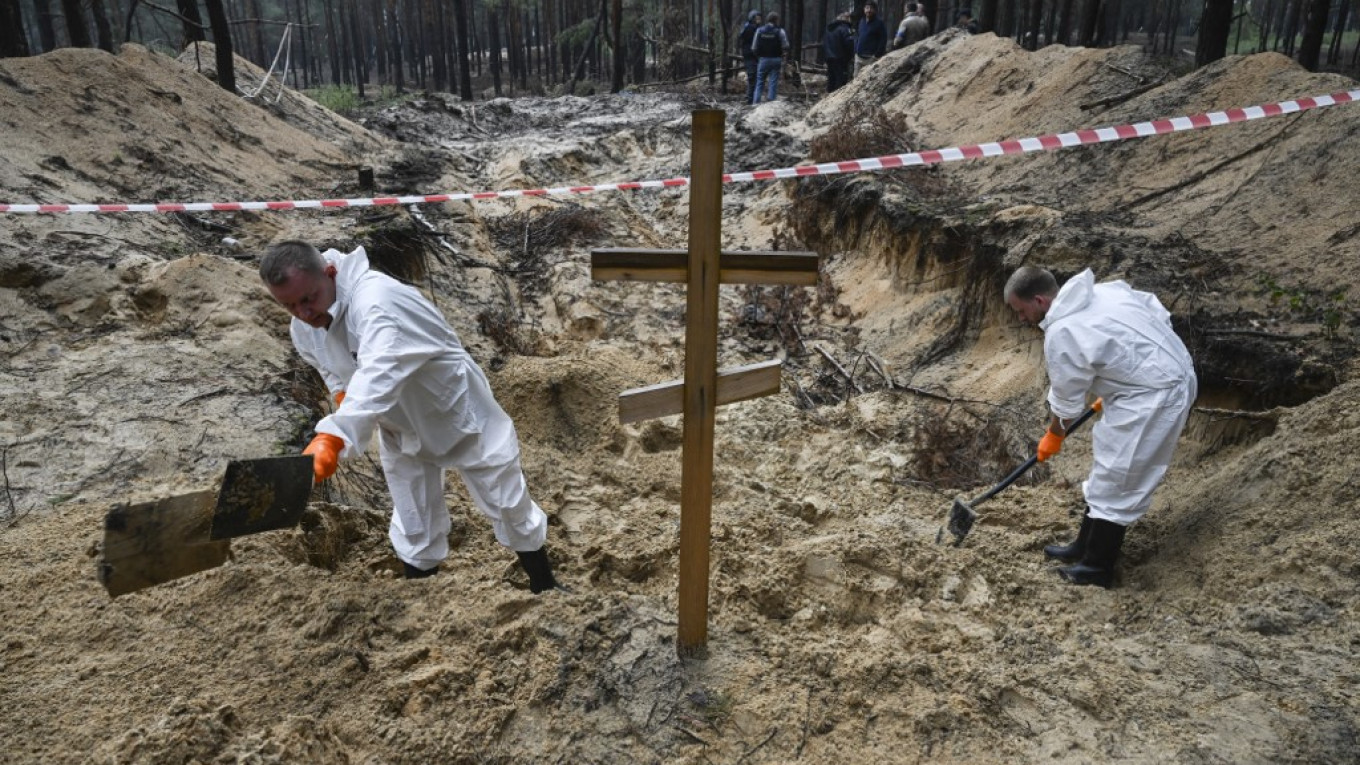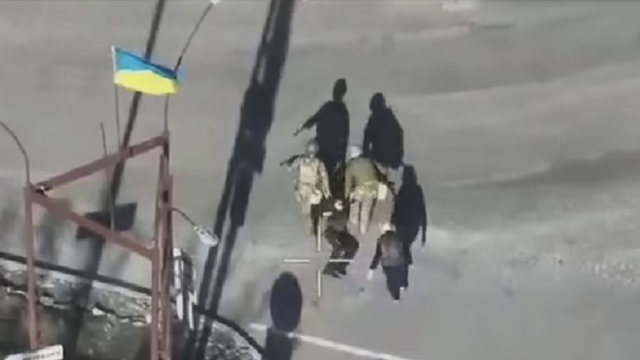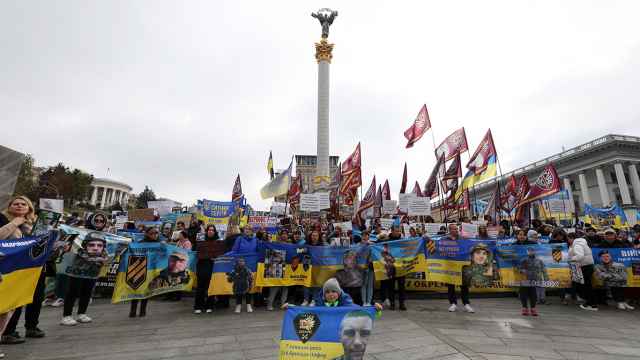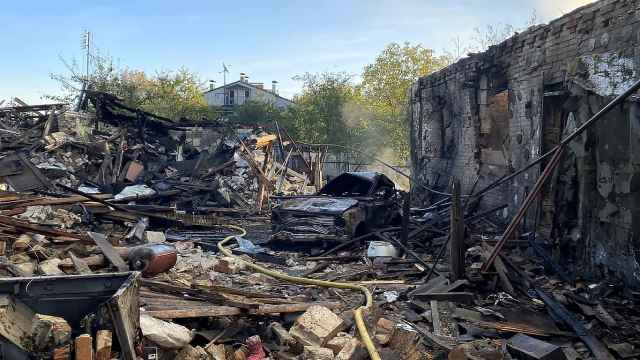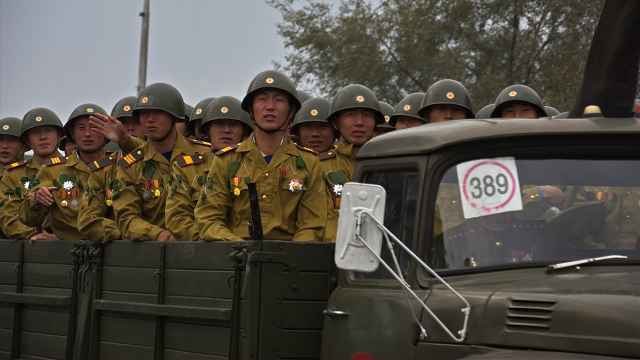Western leaders voiced revulsion and outrage Thursday after Ukraine found a mass grave outside the formerly Russian-occupied city of Izyum and said that almost all of the exhumed bodies showed signs of torture.
Officials counted 450 hastily dug graves, some marked by rough wooden crosses at the site in a pine forest only recently recaptured by Ukrainian fighters.
"Among the bodies that were exhumed today, 99% showed signs of violent death," Oleh Synegubov, head of Kharkiv regional administration, said on social media.
"There are several bodies with their hands tied behind their backs, and one person is buried with a rope around his neck," he added.
"Russia leaves only death and suffering. Murderers. Torturers," said Ukraine's President Volodymyr Zelensky. Some of the remains exhumed included children and people who were likely tortured before dying, he added.
The European Union is "deeply shocked" at the newest discovery of a mass grave left by the Russians in the nearly seven-month-old war, said the bloc's foreign policy chief Josep Borrell.
"This inhuman behavior by the Russian forces, in total disregard of international humanitarian law and the Geneva conventions, must stop immediately," he said in a statement.
U.S. Secretary of State Antony Blinken said that the graves likely provided more evidence that Russia is committing war crimes in its pro-Western neighbor, and French President Emmanuel Macron said what happened in Izyum were atrocities.
"I condemn in the strongest terms the atrocities committed in Izyum, Ukraine, under Russian occupation," Macron tweeted.
Those responsible "will have to answer for their acts. There is no peace without justice," he added.
Putin sticks to his guns
The discovery added to the pressure on Russian President Vladimir Putin, after his forces were driven into retreat in Kharkiv and are under heavy pressure from Ukrainian troops in Donetsk and Kherson.
Putin, at a regional summit in Uzbekistan, was told by Indian Prime Minister Narendra Modi that now was "not a time for war."
The discovery also came a day after Putin admitted that China, whose leader Xi Jinping was also attending the summit, had expressed "concerns" about the situation in Ukraine, which Russian forces invaded on Feb. 24.
"I think what you're hearing from China, from India, is reflective of concerns around the world about the effects of Russia's aggression on Ukraine," Blinken said in Washington.
But Putin remained steadfast, despite strong evidence that his forces incurred heavy losses in the Ukraine counteroffensive this month, and as Washington announced another $600 million in arms and ammunition for Kyiv.
"The plan is not subject to adjustment," Putin said. "Our offensive operations in Donbas itself do not stop. They are going at a slow pace... the Russian army is occupying newer and newer territories."
Putin said the main goal of the campaign was "the liberation of the entire territory of Donbas."
He accused Ukrainian forces of attempts to carry out "terrorist acts" and damage Russian civilian infrastructure.
"We are really quite restrained in our response to this, for the time being," Putin said. "If the situation continues to develop in this way, the response will be more serious."
UN speech
As the investigation into the Izyum mass grave opened, the United Nations overcame Russian opposition and voted to allow Zelensky to address next week's General Assembly by video.
Of the 193 member states, 101 voted in favor of allowing Zelensky to "present a pre-recorded statement" instead of in-person as usually required.
Seven members voted against the proposal, including Russia, and 19 abstained.
"We deeply regret that Russia's war does not allow our president to participate in person," said Ukraine's ambassador to the UN, Serhiy Kyslytsya.
Zelensky's address is slated for the afternoon of Sept. 21, but changes are likely due to many leaders heading to London for the funeral of Queen Elizabeth II on Monday.
Graves without names
The exhumations at the forest grave near Izyum were just a part of the horrific revelations of the impact of the war and Russia's occupation of the area between March and early September.
"This is part, horrifically ... of an ongoing story whenever we see the Russian tide recede from the parts of Ukraine that it has occupied," said Blinken.
Ukraine national police chief Ihor Klymenko said they had found multiple torture rooms in the town of Balakliya and elsewhere in Karkhiv since the Russians were driven out.
The United Nations in Geneva said it hopes to send a team to determine the circumstances of the deaths.
At the Izyum site two men in white overalls were digging the sandy soil.
Soon they reached the first body, exhumed it and placed it in a white plastic body bag. As more bodies appeared, the strong smell of rotting flesh spread among the trees and rough wooden crosses.
Where identification was possible, names were attached to the crosses.
At one spot, a family with a young child was buried, said Oleh Kotenko, the government official in charge of the search for missing persons nationwide.
"They were killed. There are witnesses from the same building. They saw what happened and buried these people here," he said.
"The graves without names are for those found dead in the street," he said.
A Message from The Moscow Times:
Dear readers,
We are facing unprecedented challenges. Russia's Prosecutor General's Office has designated The Moscow Times as an "undesirable" organization, criminalizing our work and putting our staff at risk of prosecution. This follows our earlier unjust labeling as a "foreign agent."
These actions are direct attempts to silence independent journalism in Russia. The authorities claim our work "discredits the decisions of the Russian leadership." We see things differently: we strive to provide accurate, unbiased reporting on Russia.
We, the journalists of The Moscow Times, refuse to be silenced. But to continue our work, we need your help.
Your support, no matter how small, makes a world of difference. If you can, please support us monthly starting from just $2. It's quick to set up, and every contribution makes a significant impact.
By supporting The Moscow Times, you're defending open, independent journalism in the face of repression. Thank you for standing with us.
Remind me later.


